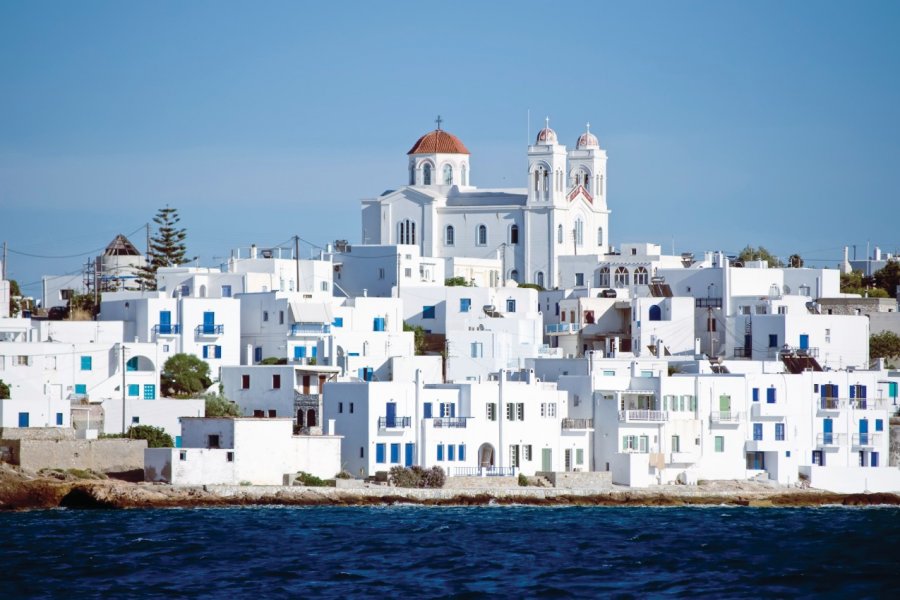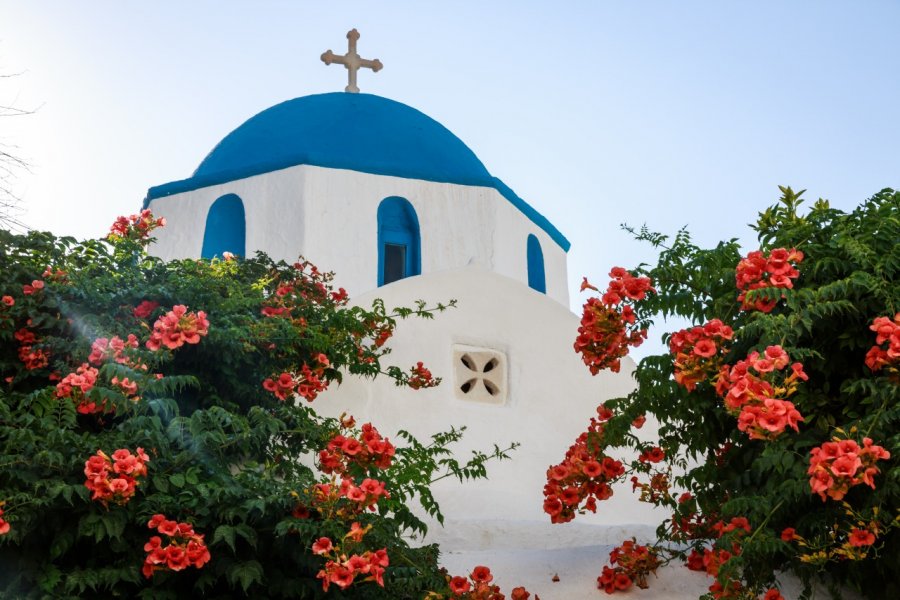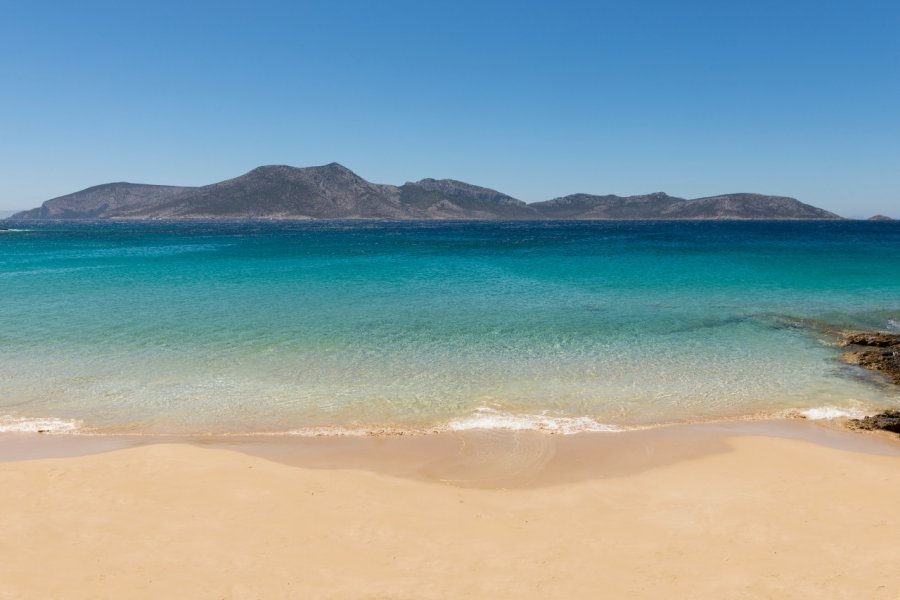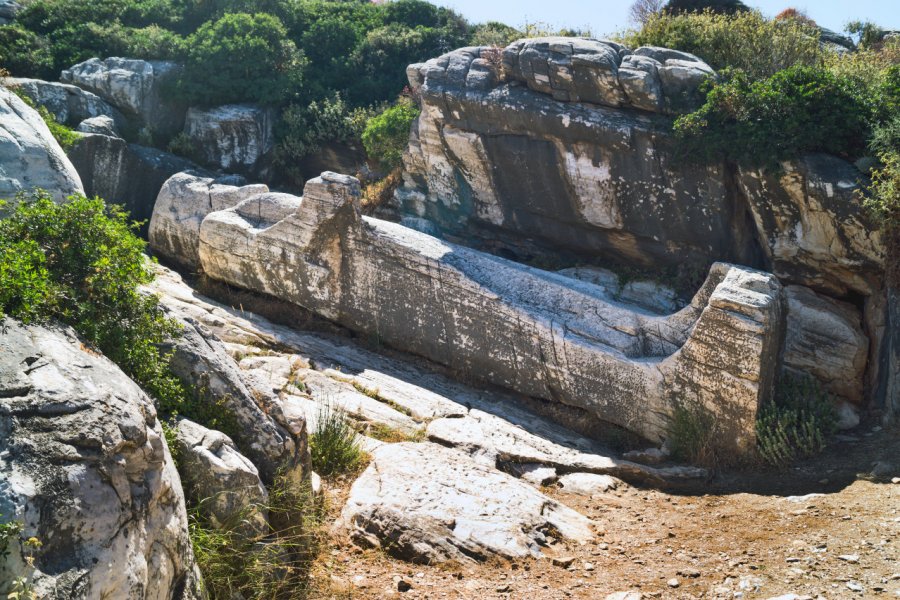Why go to Cyclades? The 10 good reasons to go Cyclades

Paradise away from the crowds
Many islands will save you from mass tourism, especially in mid-season.

Sun and climate of the olive tree
Its beautiful mildness will rock you, with 3,000 hours of sunshine per year.

Clean and beautiful beaches
The Cyclades are home to some of the most beautiful islands in Greece and Europe.

A paradise for water sports
Here you can practice both diving and windsurfing.

A varied destination
Mosaic of landscapes and atmospheres, the Cyclades seem inexhaustible.

The pleasures of the table
Grilled octopus, grape leaves, tzatziki, and so much more...

A unique cultural heritage
In front of ancient ruins or a kafeneion, history is omnipresent.

The everyday party
Any occasion is good to listen to music and dance.

Open air mythology
Who doesn't know Zeus and Aphrodite? They were born here and will take you from island to island..

A very safe destination
The Cyclades are among the safest destinations in Europe.
What to visit Cyclades?

Interview: My Cyclades
with Céline Jury, author
Céline has been travelling the roads of Greece for fifteen years for the Petit Futé. As a journalist, she was a correspondent in Athens before deciding, five years ago, to settle in Thessaloniki to continue exploring the country and its islands in a different way. Between the islands of the Cyclades, her heart inevitably swings, even if she has a weakness for Tinos. Don't ask her to choose and let yourself be carried away!
See the video of the interviewGood to know to visit Cyclades
 Timetable
Timetable
In high season, the hours of the main national sites and museums are generally harmonized. Between April1 and October 31, they are open from 8am and close around 8pm. The rest of the year, they often close at 4pm. In any case, and especially in summer, we can't recommend enough to be at the opening to avoid the crowd. But in other places of visit, especially in smaller museums or places of worship, the opening hours are a regular source of anxiety for the authors of guidebooks on Greece: they change constantly, sometimes several times a year, and often, above all, they don't even really exist. One thing to remember: stay flexible! A museum that is closed during opening hours is common, especially in the smaller islands where the number of visitors is limited. So try your luck based on the indications given in this guide or call before you come: it will be safer! Off season, assume that the sites and museums are closed but that if you find the good old man in the village, he might give you the keys... For the rest, the museums are closed on public holidays.
 To be booked
To be booked
To avoid queuing at the entrance, try booking some tickets online (hhticket.gr). For the moment, this is mainly possible in Athens for the Acropolis or the ancient Agora, as well as in Santorini. But digitalization is developing elsewhere. For example, you can book admission to the Goulandris Foundation Museum of Contemporary Art in Andros (goulandris.gr/en/tickets/monimi-syllogi-kai-periodikes).
 Budget & Tips
Budget & Tips
Beware, many tickets are going up from April 2025 to finance the upkeep and restoration of many sites. From 1ᵉʳ April 2025, ticket prices at the Acropolis, as at some 350 archaeological sites and museums around the country, could rise a lot. The Ministry of Culture announced in 2024, for example, that the Acropolis ticket price in Athens would thus rise to €30 all year round (for the Acropolis alone) compared with €20 currently in season and €10 during the winter months. Not only would the price remain the same all year round, but the combined ticket with the other archaeological sites would also disappear.
However, free admission will remain in force for European visitors aged 25 and over, and for all non-Europeans under 18.
Among the "good deals", look out for the free days on the sites: March 6 (Melina Mercouri Day), June 5 (Environment Day), April 18 (Historic Monuments Day), May 18 (Museums Day), the last weekend in September (European Heritage Day) and, above all, the first Sunday of each month, between November1 and March 31.
Lounge chairs for hire. Be careful before you sit down: on the very touristy beaches of Antiparos, Milos or Kimolos, for example, prices can be prohibitive, reaching €25 per person (parasol included), or even more on Mykonos. In 2023, this price inflation provoked the "towel movement" on Paros. This protest against the sometimes illegal occupation of the coastline by beach bars and restaurants succeeded in getting the authorities to move. Checks and fines are on the increase. However, on some private beaches, prices remain excessive or prohibitive.
 Main events
Main events
Easter (in April or May, depending on the year) is undoubtedly the most important and warmest popular Greek festival, which gives another dimension to many religious monuments that come alive with ceremonies. In Athens and in the islands, you should also watch out for the numerous festivals, especially religious celebrations, even if you are not a believer.
 Guided tours
Guided tours
Greece, and Athens in particular, is offering more and more off-the-beaten-path tours (see www. alternativeathens.com for example). For the services of a private English-speaking guide, you can contact the Association of Certified Guides (+30 210 32 20 090, www.tourist-guides.gr). It has 1,500 members throughout Greece and covers 28 languages, including French. Finally, we would like to add a special mention to Panagiotis Grigoriou, ethnologist and historian, who also proposes to discover Athens in a different way thanks to the association La Grèce autrement (greceautrement.fr).
 Tourist traps
Tourist traps
The risks are reduced because false guides, if they are controlled without accreditation, incur very heavy fines.




























